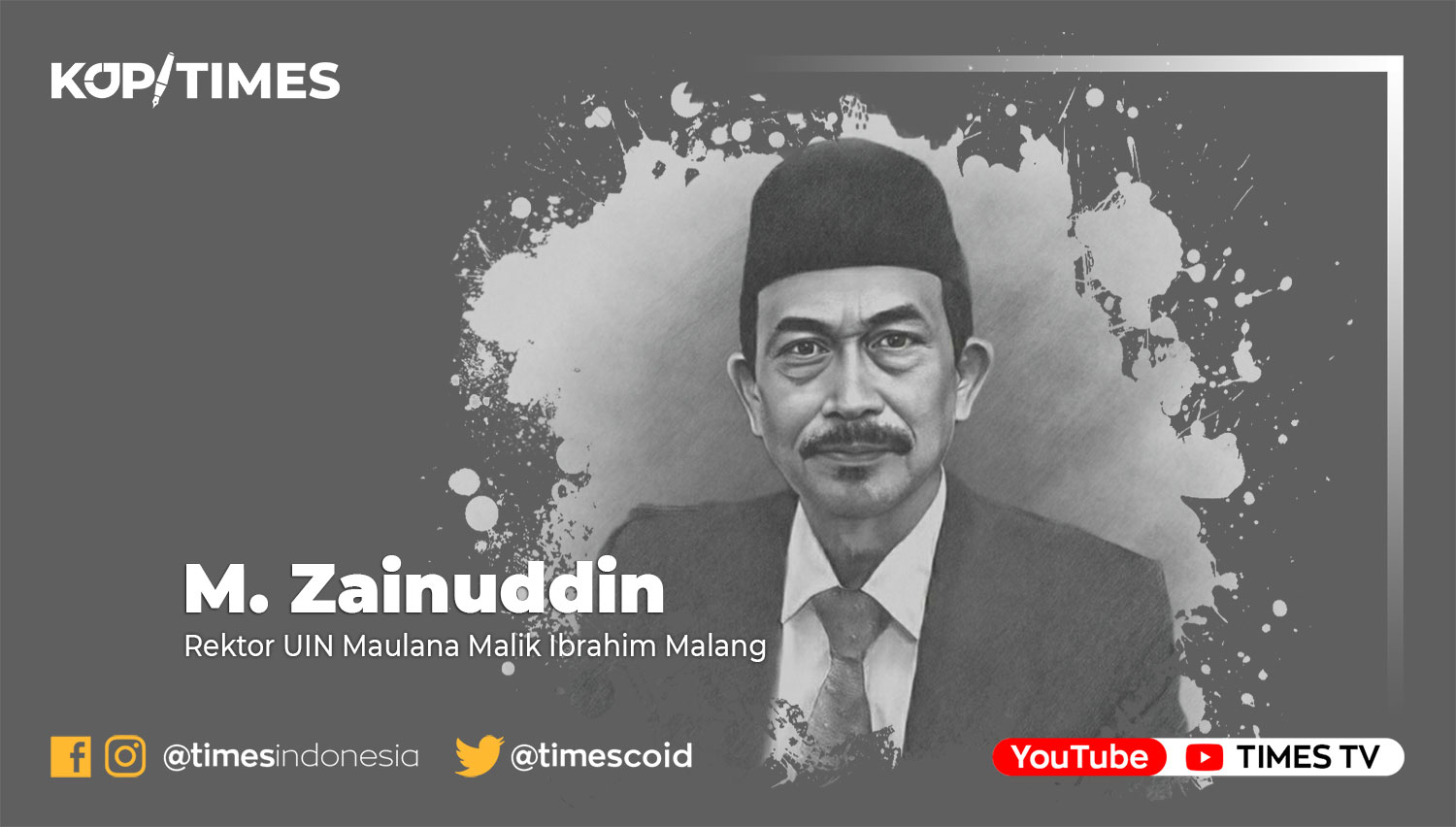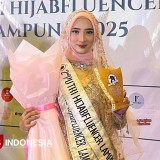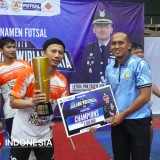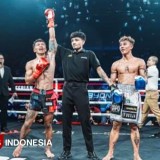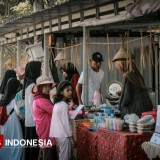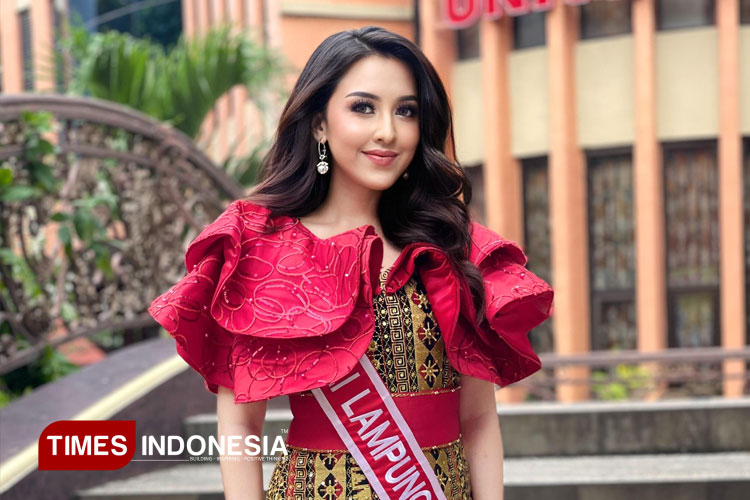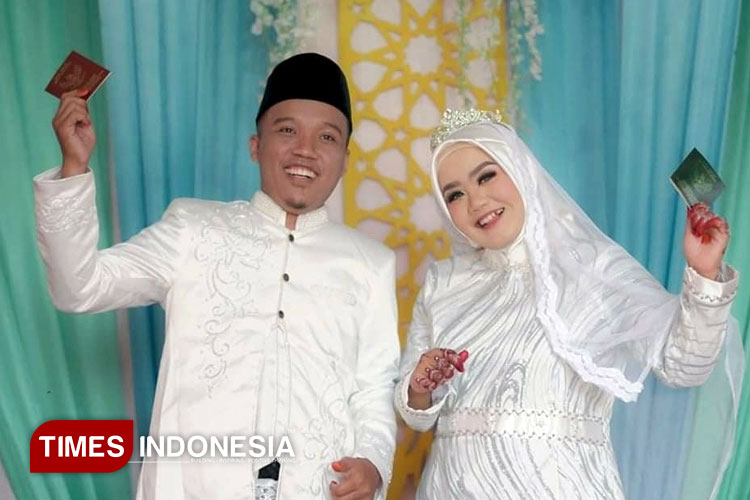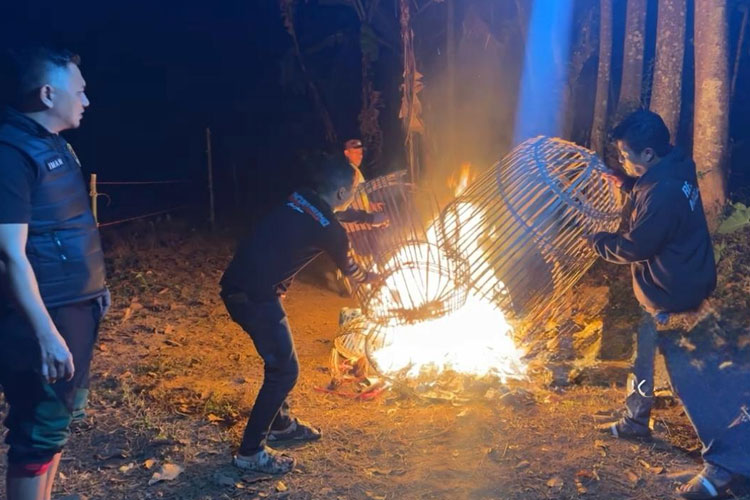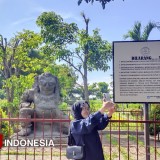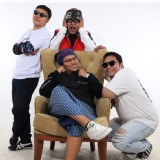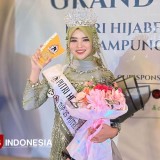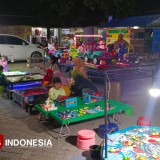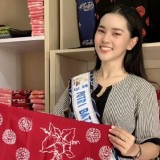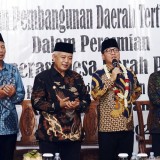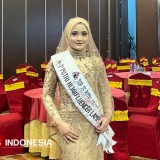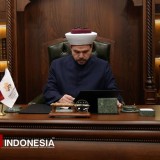TIMES MALANG, SURABAYA – One day, I got the opportunity to visit Madiun, a region located in East Java. I ordered a cup of coffee and Supermi rebus (a noodle soup) in a very modest warung (a small traditional restaurant), where “the common people” meet up. At that time, a few groups of people were enjoying their coffees and smoking there. Just like “the common people” in general who are friendly and love to greet other people, they were chit-chatting about various things. There was something about that chit-chat that left me amazed.
Pak Wongso, one of the local people of Madiun, is an elder but his language style and passion are incredible. He can be put on par with the well-educated youth. Having a job as a driver in the past—according to his statement—made him able to go around and visit several areas in Indonesia, from Java to other islands. These experiences let him learned about many characteristics of people of numerous ethnicities. I became familiar with him because he blurted out some Madurese words while speaking to one of his colleagues who were staying outside of the warung. I then asked him, “how did you master Madurese, Pak?” He laughed at my question and started to tell me many things about the existence of Indonesian ethnicities and the excellence of Javanese people, including a story of the “diversity of Javanese people.”
As how other classic stories are told, he asserted that our parents and other elders are people who possess an incredible power, a supernatural power. As an example, he told me, the elders in the past used to harvest the coconuts without climbing up the trees. They just gave the trees a powerful stare, and the coconuts would fall down immediately. This kind of story has become a common story shared among the elders in the past time in our environment. Believing in his utterances, I then asked him: “Really? Why did it happen to such an extent and what caused them to appear that way, Pak (related to digdoyo/having magical power)?” He firmly answered: “It is because they are all honest people whose utterances and behaviors are right and whose hearts are pure.” His answer led me to a contemplation, and I told myself: “this man speaks the truth.” He also stated that there are currently not many people who are honest; almost everybody are clowns. “You see, just like what appeared on the television screens,” he said. “People these days,” he continued, “say things that are contradictory to their behaviors; many of them deceive others and are corrupt.”
Afterward, Pak Wongso discussed a matter of religion. He believed that all religions, such as Islam, Christian, Buddhism, Hinduism, and other religions, are good. The bad ones are certain individuals who do not have a deep understanding about their religions and implement the religions’ virtuous teachings in their life. Thus, it is completely not true that believers or religious people are in conflict and quarrel with each other, particularly if it is about Islam and Christian. These two religions were originated from the same kin and brought by the same person that is Prophet Ibrahim. “Frankly speaking, I am a Christian, Mas, but I don’t differentiate certain religion from another. My family grew up in religiously-mixed households. Some of them are Muslims, Christians, and Hindus. In fact, I have a Chinese daughter-in-law. I tell you this, my father was graduated from an Islamic boarding school; my mother is Christian. But, everything is fine; no one considers the difference as a problem. For me, the most important matter is that people should understand and implement their religious teaching, and purify their hearts. The matter of heaven or hell comes later, in the afterlife. So, I am a ‘nationalist’, Mas.” Pak Wongso continued,” People should be like a syllable. It means that words cannot stand without letters. We must combine those letters into one syllablesyllable; for example, the word ‘Madiun’ will not exist without the unity of the letters this word contains. It goes the same with people. People should be involved in the society”, he said enthusiastically.
”Now, people tend to emphasize their pepaes, emphasizing their cover rather than their content. That’s what deceives us”, he said. Then, Pak Sarnam, one of his chatting companions in that warung agreed with the long explanation that Pak Wongso uttered. He took an example from his own family whose members did not get along well. “That’s true Pak, my family used to get along well; they visit each other. But, since they follow certain kinds of teachings, they become far apart. Some of them are the followers of NU, Muhammadiyah, and radical teaching,” he explained.
Actually, many of his words are true in the context of “diversity understanding”. The core point is that having a religion is not measured using physical symbols, but should be manifested in a pious personality.
During the chat, I preferred to listen and ask them some questions. Referring to the excellence of ancient Javanese people, I asked Pak Wongso,” What was the religion of our ancestor, Pak?”. He answered,” It must be the native religion of Javanese people. We know that Islam and Christian did not exist that day. So, they were native Javanese people who firmly held on Javanese culture”.
The Core of Religiousity
Pak Wongso’s innocent way of speaking reminds me of many Greek philosophers in 600 BC who lived before the era of prophet Isa and Muhammad PBUH. They were wise people in their era who had deep (radical) insight into their future. For example, Thales, one of the Greek's first cosmocentric philosophers, believed that the origin of nature is “water”. It turns out that Thales’ opinion is correct, based on the perspective of modern science. Quran also states that God made everything in this world from water (see Surah al-Anbiya: 30). It’s why some experts say that these ancient Greek philosophers are considered as prophets because their opinions contained a lot of truth. The term Prophet here could mean a wise man who brought the "news" of the truth.
Prophet Muhammad PBUH was sent to Earth to improve the morality of the nation, as stated in his hadiths. So, religion must lead to morality and social ethics that offer values for other people. The elders or the ancestors mentioned in Pak Wongso’s and the ancient Greek philosophers’ statement are people who have great personalities and high authorities in the society at that time. They became role models (uswah and qudwah) for their followers. This is what is called as “local-wisdom”. What they do is in accordance with their sincere intention. Today, we can rarely find public figures showing this kind of behavior.
Pak Wongso is one of those people who still follow the path taken by the ancestors, or at least he still inherits their “local-wisdom” tradition. In the context of his understanding and religious attitude, he can be grouped into the pluralist category. His words remind me that humans should be like "syllables". They must be assembled from letters. It is similar to the words of Prophet Muhammad PBUH. He stated that the position of believers among other believers is like buildings that strengthen each other, or it is like a group of a human’s teeth. It means if one of them hurts, the other feel the pain too.
Regarding the context of national and state life, we must be able to determine the internal and external dimension. So far, the conflicts occurred among the religious believers are caused by their inability to put the religious teaching on the right side. Religious people highlight their identities more than their content and universal humanity. Religious people are busy ensuring others to follow their religion rather than building morality. They are proud of the large numbers of places of worship. Furthermore, they also feel satisfied after discrediting other religions. The dominance of this formalistic flow of religious matter almost leads the efforts to solve this problem to a verbalistic religion. The struggle to uphold the sacred teaching of religion is mostly realized by building discourses, expensive and magnificent places of worship, and exclusive places for doing da'wah (Islamic preaching) that are completed with the symbols of the greatness of their respective religions as a part of the splendor of religion. Wallāhu A'lam bi al-Šawāb.
* M. Zainuddin, Professor in Sociology of Religion, Rector of UIN Maulana Malik Ibrahim Malang
*)Tulisan Opini ini sepenuhnya adalah tanggungjawab penulis, tidak menjadi bagian tanggungjawab redaksi timesindonesia.co.id
____________
**) Kopi TIMES atau rubik opini di TIMES Indonesia terbuka untuk umum. Panjang naskah maksimal 4.000 karakter atau sekitar 600 kata. Sertakan riwayat hidup singkat beserta Foto diri dan nomor telepon yang bisa dihubungi.
**) Naskah dikirim ke alamat e-mail: [email protected]
**) Redaksi berhak tidak menayangkan opini yang dikirim.
| Pewarta | : |
| Editor | : Yatimul Ainun |
